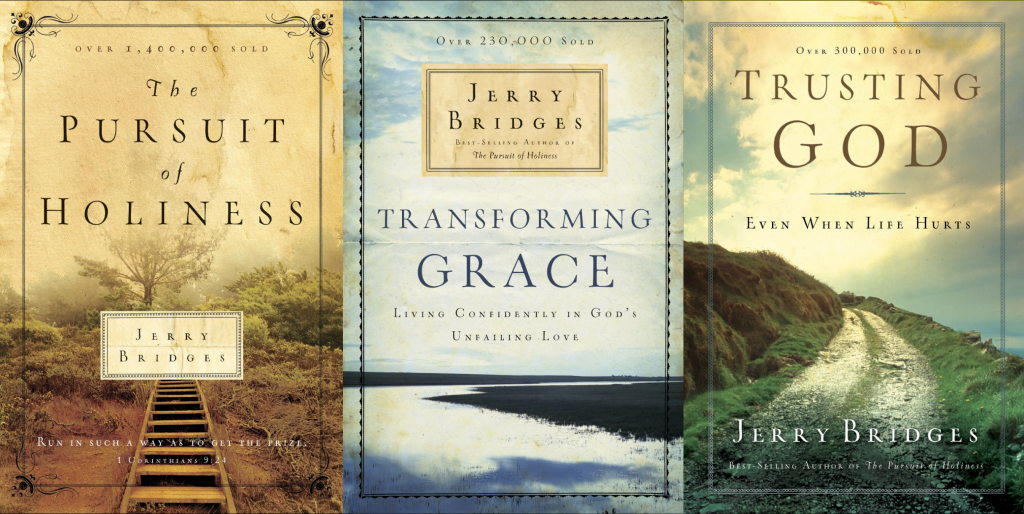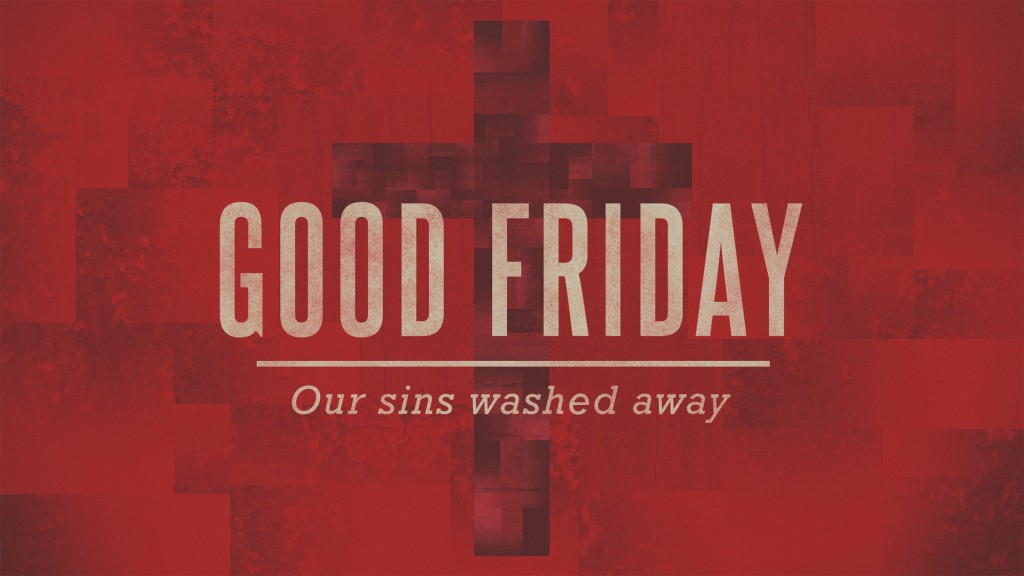
Jerry Bridges, well-known author and Christian speaker, passed away this week. Over the past 35+ years I have read almost all of Jerry’s books (20), and God has used them to impact me in profound ways. There were four of Jerry’s books that I read twice (yes, they were that good):
Jerry’s passing this past week reminded me why it is so important for those within the body of Christ who have been gifted by God to write exceptionally well – to carve out time to write! Their writings will outlive them. Long after they are gone, their books will continue to be used by God to bless, encourage, equip, challenge and shape Christians – like you and me.
Here are a few quotes (and a few of my thoughts) taken from a sermon series I preached a few years ago on the subject of growing spiritually and living our lives from acceptance rather than for acceptance (James 1:22-25; Philippians 2:12-13; Romans 5:1; 6:1; 8:1; Galatians 2:16; Hebrews 12:8).
As you will see, Jerry Bridges’ quotes were peppered throughout. Why? Because he communicated far more clearly what I needed to say as I tried to preach on this subject.
Enjoy!
“What is a sign of maturity? Practicing what you hear. Through practice you become mature. You see, it’s one thing to grow old in the Lord, but it’s another thing to grow up in the Lord.
“There are many people cruising from church to church, from Bible conference to Bible conference, filling notebook after notebook, wearing out Bible after Bible, who are still some of the crankiest, fussiest, grumpiest, most irresponsible people you meet. Why? Because they do not practice the things they hear. This is the whole thrust of the book of James. He wants you to put to the test what you claim to believe – by doing it. A mature person is one who is involved in practicing on a regular, consistent basis what he hears and what he takes in. Just being exposed to Bible instruction won’t solve problems.” (Chuck Swindoll)
The best two word phrase that I have heard that describes how we change and grow in Christ (i.e. sanctification) is: Active Dependence!
The pattern in Scripture is… indicatives (i.e. the Truth about who God is, who we are, and what God has done for us) must precede imperatives (i.e. God’s commands)! It’s understanding and believing the indicatives that gives us the power to carry out the imperatives!
“A farmer plows his field, sows the seed, and fertilizes and cultivates – all the while knowing that in the final analysis he is utterly dependent on forces outside of himself. He knows he cannot cause the seed to germinate, nor can he produce the rain and sunshine for growing and harvesting the crop. For a successful harvest, he is dependent on these things from God.
“Yet the farmer knows that unless he diligently pursues his responsibilities to plow, plant, fertilize, and cultivate, he cannot expect a harvest at the end of the season. In a sense he is in a partnership with God, and he will reap its benefits only when he has fulfilled his own responsibilities. Farming is a joint venture between God and the farmer. The farmer cannot do what God must do, and God will not do what the farmer should do.
“We can say just as accurately that the pursuit of holiness is a joint venture between God and the Christian. No one can attain any degree of holiness without God working in his life, but just as surely no one will attain it without effort on his own part. God has made it possible for us to walk in holiness. But He has given to us the responsibility of doing the walking; He does not do that for us.
“…holiness is a process, something we never attain in this life. That is why we will always be pursuing – as opposed to attaining – holiness in this life.” (Jerry Bridges – from The Pursuit of Holiness)
In the Preface to The Discipline of Grace, Jerry Bridges begins by writing the following – the very first sentence in the preface of his book:
“Shortly after my book The Pursuit of Holiness was published in 1978, I was invited to give a series of ten lectures on that subject at a church in our city. One night I titled my lecture ‘The Chapter I Wish I Had Written.’ The nature of that message was that the pursuit of holiness must be motivated by an ever-increasing understanding of the grace of God; or else it can become oppressive and joyless.”
Here were a few other favorite Bridges quotes:
“We are to live our lives from acceptance, not for acceptance.”
“Living by grace instead of by works means you are free from the performance treadmill. It means God has already given you an “A” when you deserved an “F”. He has already given you a full day’s pay even though you may have worked only one hour. It means you don’t have to perform certain spiritual disciplines to earn God’s approval. Jesus Christ has already done that for you. You are loved and accepted by God through the merit of Jesus, and you are blessed by God through the merit of Jesus. Nothing you ever do will cause Him to love you any more or any less. He loves you strictly by His grace given to you through Jesus!” (Jerry Bridges – Transforming Grace)
What is Legalism? Legalism is seeking to achieve forgiveness from God and acceptance by God through obedience to God.
“Legalism has its origin in self-worship. If people are justified through their obedience to the law, then they merit praise, honor, and glory. Legalism, in other words, means the glory goes to people rather than God.” (Thomas Schreiner)
“The antidote to legalism is living a ‘gospel-centered’ life!” (Jerry Bridges)
“Preach the gospel to yourself every day! By doing so, it addresses the self-righteous Pharisee and the guilt-laden sinner that dwell in our hearts.” (Jerry Bridges)
“The gospel-centered life is a life where a Christian experiences a growing personal reliance on the gospel that protects him from depending on his own religious performance and being seduced and overwhelmed by idols.” (Jerry Bridges)
What does it mean to live a “gospel-centered life?”
“1. Confidence (Heb. 3:14; 4:16) When the gospel is central in our lives we have confidence before God – not because of our achievements, but because of Christ’s atonement. We can approach God knowing that he receives us as his children. We do not allow our sins to anchor us to guilt and despair, but their very presence in our lives compels us to flee again and again to Christ for grace that restores our spirits and gives us strength.
“2. Intimacy (Heb. 7:25; 10:22; James 4:8) When the gospel is central in our lives we have and maintain intimacy with God, not because of our religious performance, but because of Jesus’ priestly ministry. We know that Jesus is our mediator with God the Father and that he has made perfect peace for us through his sacrifice allowing us to draw near to God with the eager expectation of receiving grace, not judgment.
“3. Transformation (2 Cor. 3:18; 1 Thess. 5:23; 2 Thess. 2:13) When the gospel is central in our lives we experience spiritual transformation, not just moral improvement, and this change does not come about by our willpower, but by the power of the resurrection. Our hope for becoming what God designed and desires for us is not trying harder, but trusting more – relying on his truth and Spirit to sanctify us.” (Tim Challies and Joe Thorn)
“We believers do need to be challenged to a life of committed discipleship, but that challenge needs to be based on the gospel, not on duty or guilt. Duty or guilt may motivate us for awhile, but only a sense of Christ’s love for us will motivate us for a lifetime.”
“Your worst days are never so bad that you are beyond the reach of God’s grace. And your best days are never so good that you are beyond the need of God’s grace.” (Jerry Bridges – The Discipline of Grace)
The overall theme of the book of James is: Real faith produces genuine works! If your faith is genuine then your works will be real. If you say that you have the real disease, then you will have the genuine germs. Faith is the root. Works are the fruit. If you have the root, then you will have the fruit. James isn’t preaching salvation by works. He is simply saying that if a person genuinely knows Christ, then their will be fruit. As John Calvin so famously said: “It is faith alone that justifies, but faith that justifies can never be alone.”
Don’t simply read, study and listen to God’s Word, make it a priority to put what you learn into practice!
“We must daily soak ourselves in the Scriptures. We must not just study, as through a microscope, the linguistic minutiae of a few verses, but take our telescope and scan the wide expanses of God’s Word, assimilating its grand theme of divine sovereignty in the redemption of mankind. ‘It is blessed,’ wrote Charles Spurgeon, ‘to eat into the very soul of the Bible until, at last, you come to talk in scriptural language, and your spirit is flavored with the words of the Lord, so that your blood is bibline and the very essence of the Bible flows from you.” (John Stott)
”Wisdom is the right use of knowledge. To know is not to be wise. Many men know a great deal and are all the greater fools for it. There is no fool so great as a knowing fool. But to know how to use knowledge is to have wisdom.” (Charles Spurgeon)


